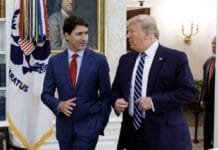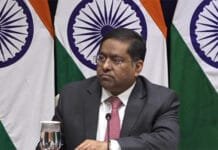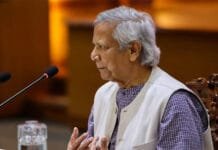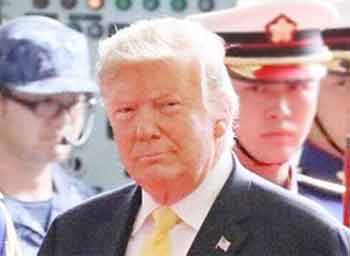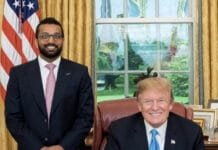INVC NEWS
Washington : Analyze the contours of international trade in the context of Trump’s call for equitable taxation. Understand the historical context, future implications, and the complexities of fostering productive trade relationships.
the statements made by influential figures can have far-reaching implications. Former US President Donald Trump’s comments on India’s taxation policies in relation to American companies have sparked significant discussions. This article aims to delve into the intricacies of Trump’s stance on Indian taxes and its potential impact on bilateral trade relations.
1. Introduction: Unpacking the Controversial Statements
Donald Trump, during his tenure as the President of the United States, expressed concerns regarding India’s taxation practices targeting American companies engaged in the automobile industry. He specifically highlighted the high tariffs imposed on motorcycles and cars manufactured by American companies operating in India. Trump’s viewpoint centered on the imposition of reciprocal taxes if he were to regain power in 2024.
2. The Call for Reciprocity: A Tactical Approach
Trump’s assertion of implementing reciprocal taxes on India raises questions about the fairness and equity of international trade relationships. The former president emphasized the need for balance, suggesting that if India continued to impose high taxes on American products, the US should respond in kind. This approach, if enacted, could have substantial implications for trade dynamics between the two nations.
3. Harley Davidson’s Predicament: A Case in Point
The iconic American motorcycle brand, Harley Davidson, became a focal point in Trump’s criticism of India’s import duties. He highlighted the stark contrast between the treatment of Indian motorcycles in the US market and American motorcycles in India. Trump cited instances of excessively high tariffs, such as 100 percent, 150 percent, and 200 percent, imposed by India on certain imports. This disparity fueled his argument for a more balanced and mutually beneficial trade landscape.
4. The Quest for Uniformity: Addressing Disparities
One of the key issues Trump raised was the lack of uniformity in taxation between the two countries. He questioned the rationale behind India’s higher tariffs compared to those of the US. Trump’s viewpoint aligns with the desire for a level playing field that promotes fair competition and facilitates smoother trade relations.
5. The “Plant” Proposition: A Multifaceted Approach
Trump’s comments also touched upon a strategic proposition – the establishment of manufacturing plants within India. He suggested that American companies could potentially avoid high tariffs by building production facilities in the country. While this approach might alleviate tariff-related challenges, it introduces complex considerations such as investment feasibility, operational logistics, and local regulations.
6. Examining the India-US Relationship: A Broader Context
Beyond the specifics of taxation, Trump’s remarks shed light on the broader relationship between the US and India. He acknowledged Prime Minister Narendra Modi as a good friend while advocating for a more balanced trade equation. Trump’s emphasis on fair trade practices underscored the importance of maintaining healthy diplomatic ties while addressing economic disparities.
7. Historical Context: The Evolution of Indian Taxation
To fully comprehend the nuances of Trump’s critique, it’s essential to examine the historical context of Indian taxation policies. Over the years, India has taken various steps to protect its domestic industries and encourage local manufacturing. This has led to the implementation of tariffs on certain imports, which Trump perceived as hindrances to a smooth trading relationship.
8. Future Implications: Potential Trade Reforms
The discourse sparked by Trump’s remarks raises questions about the potential reforms in India’s taxation policies. While the former president’s statements are specific to his tenure, they underscore the need for ongoing dialogues on trade equity. Future administrations in both countries may find common ground to address concerns and promote a mutually beneficial trade environment.
9. Global Trade Norms: Navigating Complexity
Trump’s assertions also bring to light the complexities of navigating global trade norms and regulations. Different countries employ varying taxation strategies to safeguard their interests, resulting in a complex web of tariffs and duties. Understanding these nuances is crucial for fostering productive trade relationships while safeguarding each nation’s economic priorities.
10. Conclusion: A Call for Equitable Trade Practices
In conclusion, Donald Trump’s statements regarding India’s taxation policies have sparked conversations about the intricacies of international trade relations. His emphasis on reciprocity, uniformity, and fairness underscores the challenges and opportunities associated with fostering a balanced trade environment. While trade dynamics are influenced by a multitude of factors, addressing concerns raised by influential figures like Trump is crucial for promoting sustained economic cooperation.


